Protecting children from 'traps' in cyberspace
In the digital age, the internet is becoming an inseparable part of life. However, for children, early access to the internet and social networks also poses many risks, especially the problem of child abuse in the online environment.
Many potential risks
According to the 2024 survey "Voice of Vietnamese Children" by the Institute for Sustainable Development Management (MSD) and Save the Children International, up to 83.9% of children participating in the survey used phones, 86.1% used social networks.
For children - who do not have enough knowledge, skills, and experience, when participating in activities on the Internet environment, they may face many risks. Without guidance and close management and supervision from parents, children can be exposed to and affected by bad and toxic information with obscene, violent content that is not suitable for their age.
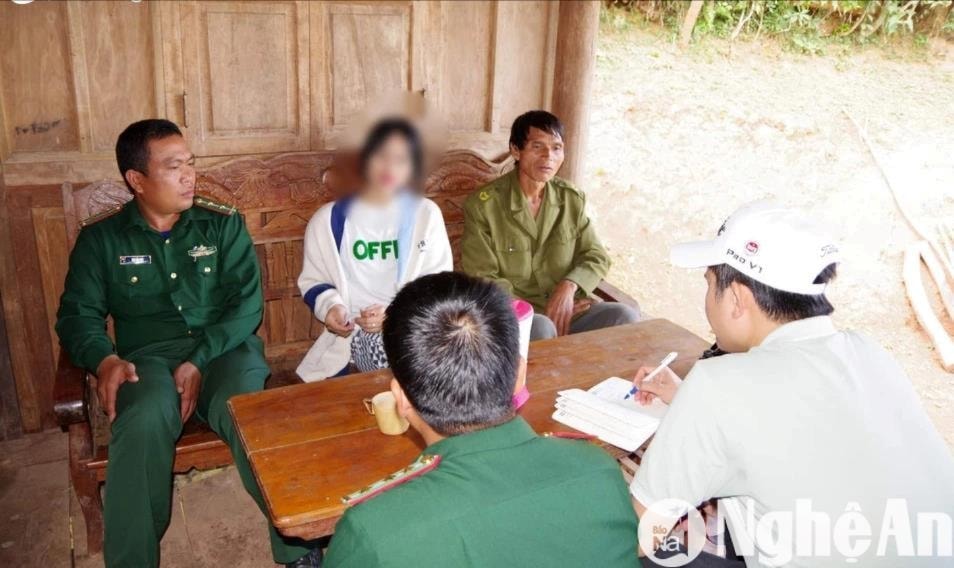
On the other hand, children in puberty and development are at an age when they are easily affected and psychologically damaged. They always want to prove themselves to their parents, teachers, and friends, so it is easy for them to have distorted thoughts, leading to wrong actions when accessing bad information on social networks.
In fact, through the online environment, some children, especially girls in disadvantaged and remote areas, have been lured by bad people into "easy work, high salary" but in reality, they are being tricked into selling or exploiting their labor. Recently, the authorities have promptly prevented some of these cases.
Typically, on March 5, 2025, Cau Giat Town Police, Quynh Luu District (Nghe An) handed over two children H'Nu B and H'Cat B to Thong Nhat Ward Police and representatives of Blung 1A village, Buon Ho town, Dak Lak province.
According to the statement, the two children H'Nu B and H'Cat B listened to the invitation of an acquaintance on social media to go to the North to do "light work, high salary". This person instructed the two children to hide from their families and take a bus from Dak Lak to Hanoi.
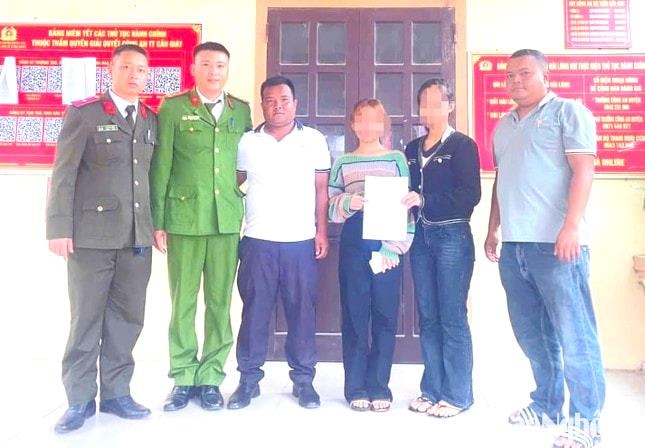
Listening to the subject's enticement, on the evening of March 3, 2025, the two children ran away from home and took a bus to Hanoi. On the evening of March 4, when they arrived at Cau Giat town (Quynh Luu), through social networks, the two children learned that their families were looking for them. Afraid of being tricked and sold abroad, the two children proactively contacted their parents. Upon receiving the news, relatives guided the children off the bus and informed them of the location to pick them up. At this time, H'Nu B and H'Cat B had traveled over 1,000 km. Therefore, when they got off the bus, they lost their direction and calm.
Cau Giat Town Police contacted Thong Nhat Ward Police, Buon Ho Town, Dak Lak Province to verify the incident. At the same time, they arranged food, accommodation and psychological stability for the children. Afterwards, Cau Giat Town Police handed over the two children to Thong Nhat Ward Police and representatives of Blung 1A village.
Previously, at around 6:30 p.m. on December 6, 2024, Road Traffic Police Team No. 2, under the Traffic Police Department, Nghe An Provincial Police, received a report that in Hoa Dong Ward, Thach Giam Town, Tuong Duong District, a girl was lured by a stranger on social media to leave home to work in Hai Phong. Suspecting that she was being tricked, the family reported to Road Traffic Police Team No. 2 to rescue their daughter. Upon receiving the report from the family, Road Traffic Police Team No. 2 took action and intercepted her on National Highway 7.
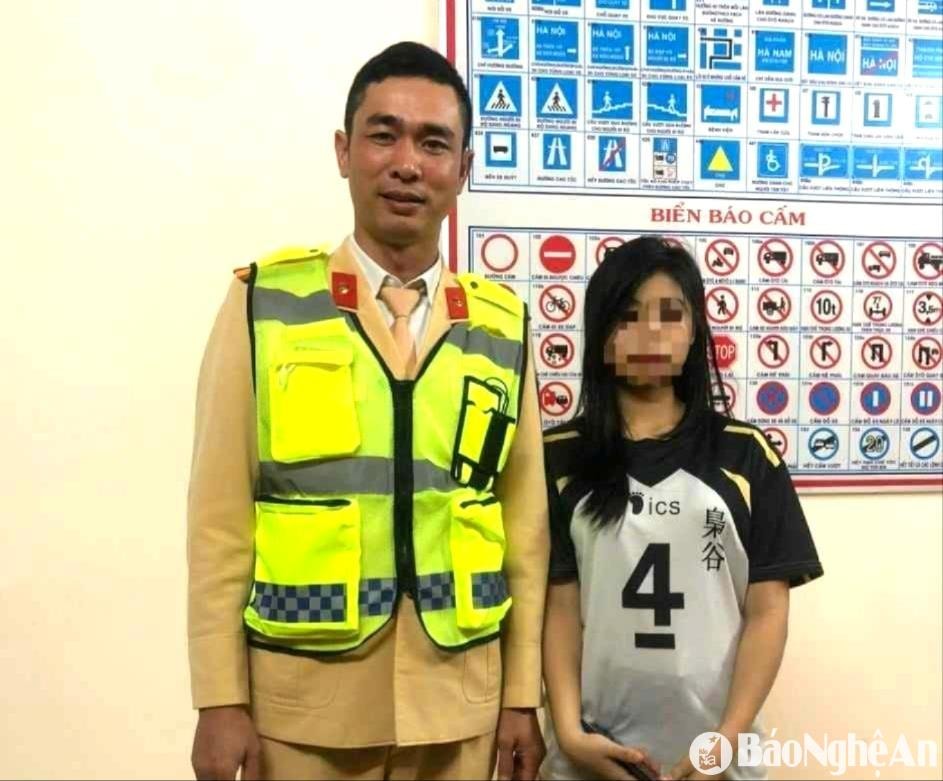
At about 9:00 p.m. the same day, at Km28, National Highway 7, Road Traffic Police Team No. 2 inspected a passenger bus with license plate 15B-038.28 driven by Mr. Tran Quang Tr. (born in 1978), residing in Tay Tien, Tien Hai (Thai Binh). After checking the information and verifying the number of passengers on the bus, there was a girl named Vu Minh Th. (born in 2010), residing in Tuong Duong district, Nghe An province, as reported. At this time, the soldiers of Road Traffic Police Team No. 2 explained to Th. to make her aware of the tricks and harmful effects of human trafficking. After that, Th. was clearly aware of the problem and returned to her family.
However, in reality, not all cases are so lucky. There have been cases where children were tricked and sold abroad, suffering both physical and mental trauma before being rescued by authorities or escaping back to denounce the person who tricked and sold them.
Speaking in a live dialogue program on the prevention and combat of human trafficking, a representative of the Criminal Police Department (Nghe An Provincial Police) said: "Currently, human trafficking crimes have shifted from direct to using social networks and applying high technology to criminal activities."
Some criminals have embellished or created virtual information on social networks about a wealthy, well-off life to easily approach, get acquainted, make children trust and admire... then deceive and entice them to carry out acts of grooming, buying and selling, sexually abusing and exploiting the labor of minors.
Recently, the Ministry of Public Security's Electronic Information Portal has warned about child abuse in cyberspace. Accordingly, bad guys are currently taking advantage of social networks like Facebook, Zalo, Instagram, dating apps (Tinter, Litmarch), "virtual" chat rooms, and online games (Lien Quan Mobile, PUBG, Free Fire) to approach and text children.
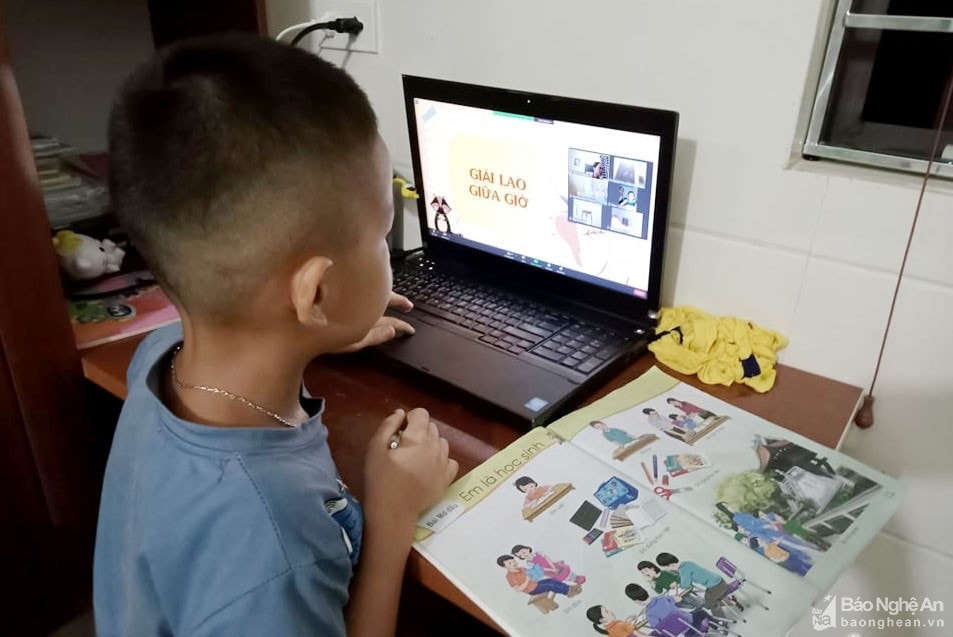
After a period of conversation, the subjects changed the topic from studies and hobbies to gender and sex, enticing the children to watch pornographic movies and images online, then enticing them to film and take pornographic photos of themselves.
After obtaining the images, the subjects will "blackmail" or sell the images to other subjects. In addition, some subjects also promise love affairs, even lend money, give gifts with the purpose of easily approaching, meeting the children in reality and then committing acts of sexual abuse, in some cases even luring them to go abroad.
Proactive prevention
In recent times, the Party and State have paid attention to the work of protecting children on the Internet, mobilizing the entire political system to participate. To protect children in cyberspace, the Government issued Decision No. 830/QD-TTg dated June 1, 2021, "Approving the program to protect and support children to interact healthily and creatively in the online environment for the period 2021-2025".
Accordingly, along with other synchronous solutions, functional sectors have coordinated with schools to strengthen propaganda, education and training for children on self-protection skills and healthy and creative interaction skills in the online environment.
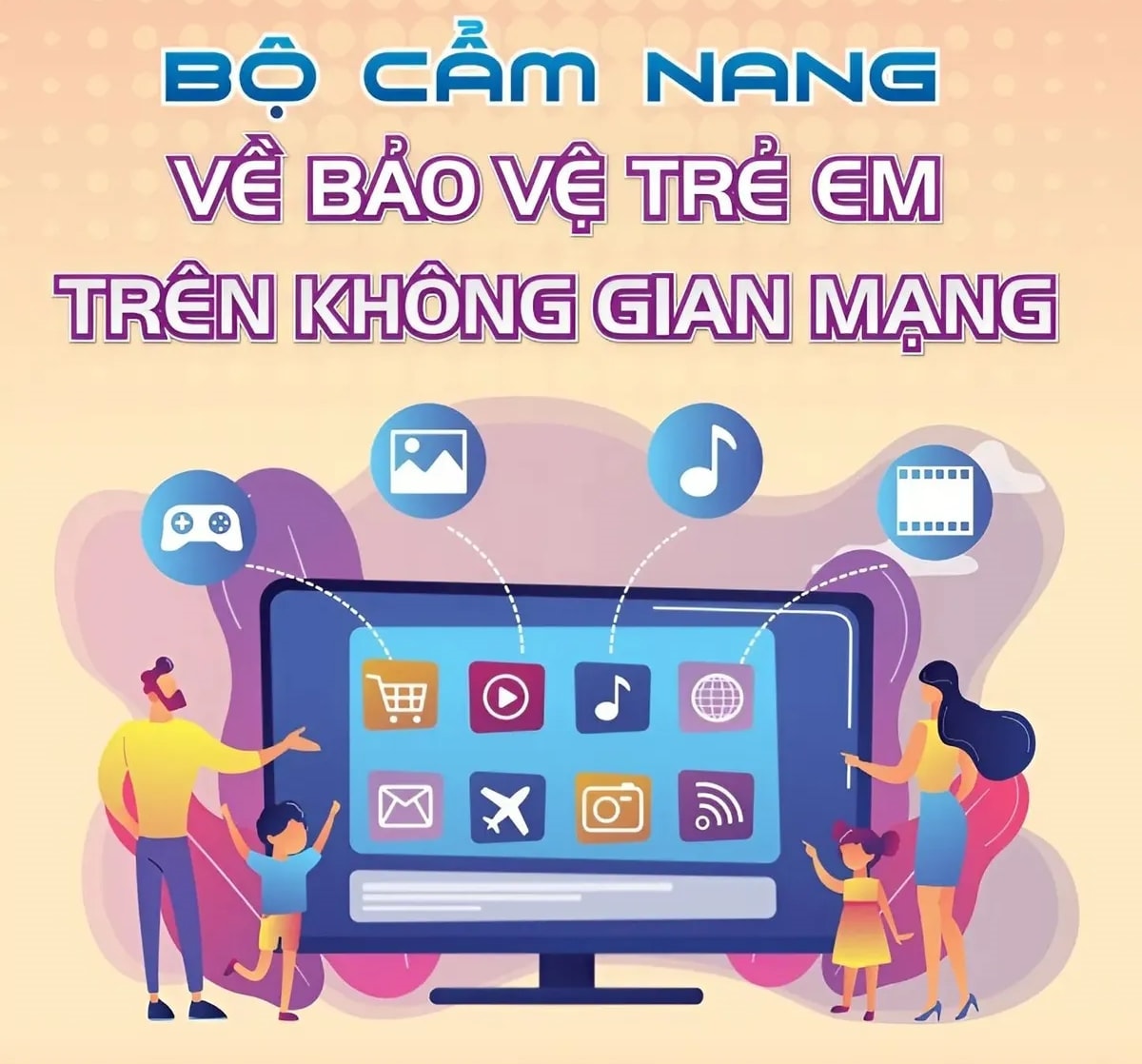
However, given the complex developments in cyberspace, to prevent unfortunate incidents from occurring, it is necessary for all levels, sectors, schools and families to join hands and participate to build a safe and healthy cyber environment for children; protect children from fraud, seduction, abuse, bullying and bad, toxic information.
The police agency recommends: Parents must strictly control their children's online activities, check the list of friends, associations and groups that their children participate in on social networks...
Regularly educate your children about online information security, do not talk to strangers, explain to children about the dangers of sharing sensitive information, images, and videos on social networks, encourage children to immediately report to their parents and teachers when being lured or threatened by someone. In addition, parents also need to be careful when sharing images and personal information of their children on the internet to avoid being exploited by bad guys.
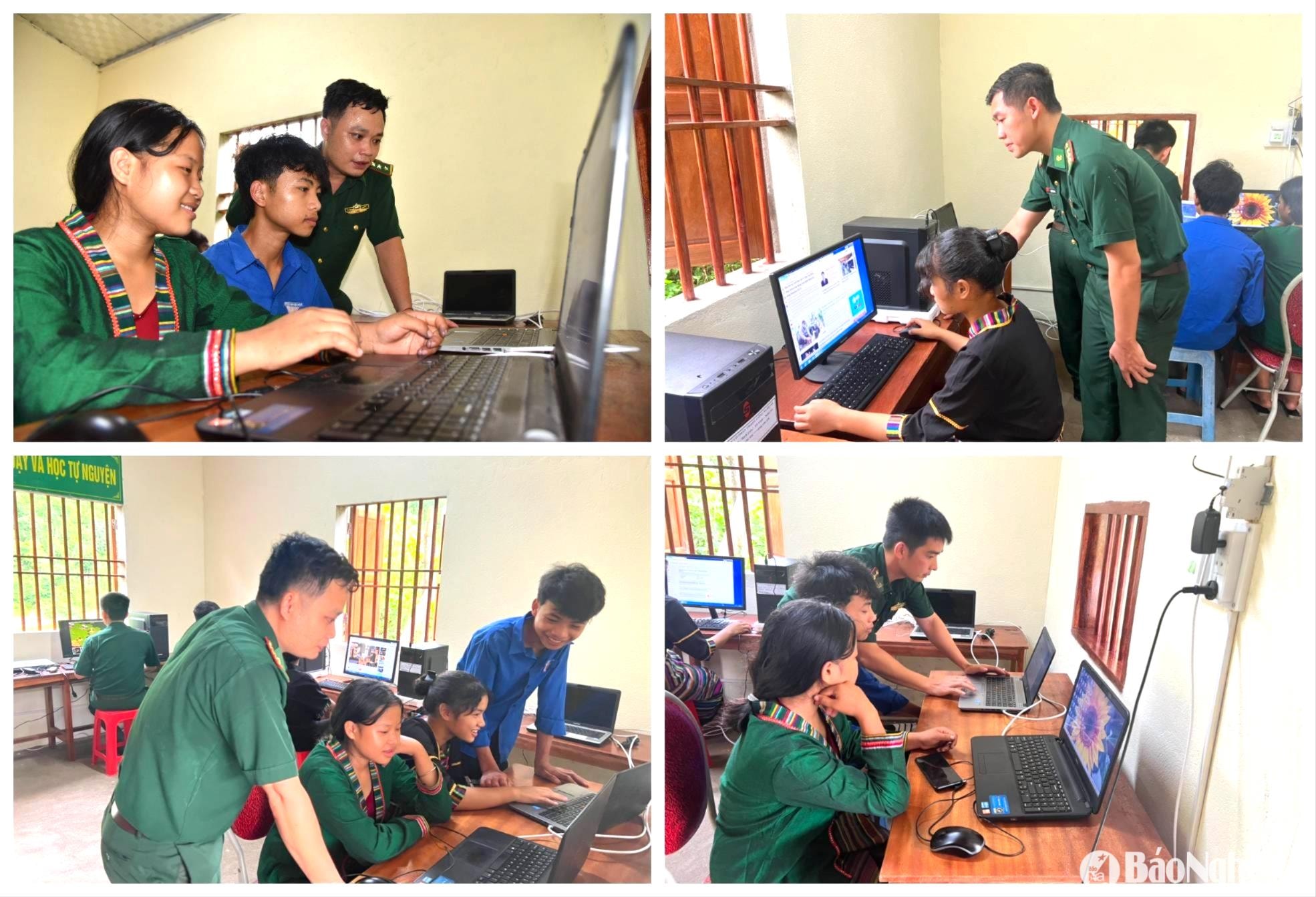
For children and teenagers, be careful when using social networks, do not send sensitive photos or videos of yourself to others (including strangers and acquaintances), do not share personal information such as name, home address, school address, phone number... with strangers. Be wary of requests for video calls, sending private photos or promising gifts. Do not access strange links, links or attachments in messages, emails or suspicious posts on social networks because they may contain malware or scams.
Authorities also recommend that parents and children should regularly update information on methods of child abuse on the internet and measures to prevent and combat it. When detecting signs of your child being abused or defrauded of property, immediately stop all transactions, save evidence (messages, screenshots) and report to the nearest police station for timely handling.
In addition, parents also need to understand, comply with and guide their children to access the contents of the Code of Conduct on Child Protection in the Online Environment, in order to contribute to protecting and supporting children to interact healthily and creatively in the online environment. At the same time, raise awareness of the risks that children face when operating in the online environment.




.jpg)

